Singapore and China Continue to Deepen Legal Cooperation
Singapore and China Continue to Deepen Legal Cooperation
Insight MinLaw goes behind the scenes to uncover stories about how the work we do impacts you.
A Memorandum of Cooperation and a new Joint Experts Team were among the highlights at the second Singapore-China International Commercial Dispute Resolution Conference. Co-hosted by the Singapore Ministry of Law (MinLaw), the Chinese Council for the Promotion of International Trade (CCPIT) and the International Commercial Dispute Prevention and Settlement Organization (ICDPASO), the recent event held on 7 April 2022 reaffirmed the close partnership and warm relations between Singapore and China, despite the challenges posed by the COVID-19 pandemic.
The event featured more than 30 speakers who shared their insights on the development and future of international commercial dispute resolution. It was held across multiple venues in Singapore, Beijing and Xiamen, and saw over 200 persons attending in person, as well as more than two million accumulated views on its live streaming platforms.
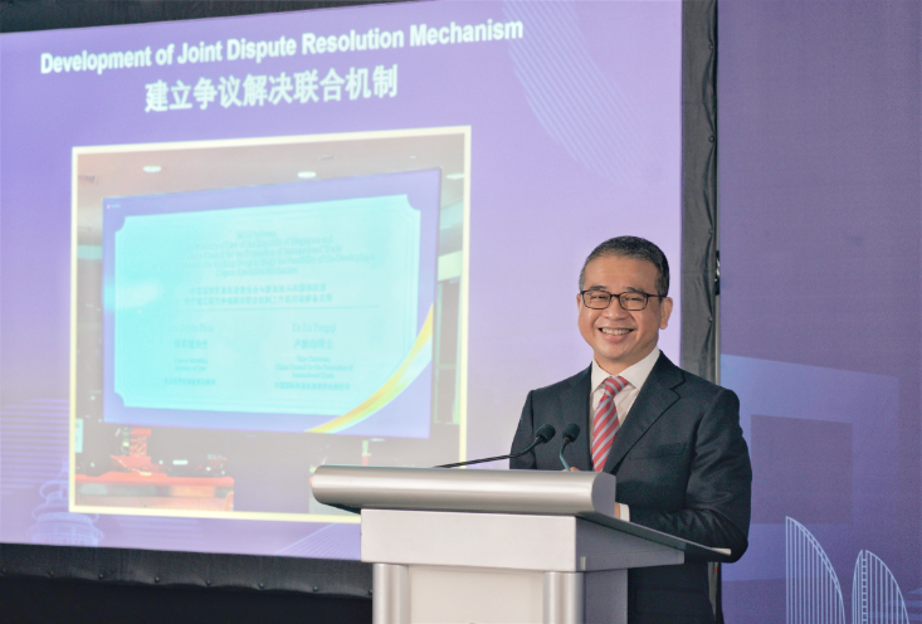
“I think there is a lot of value to having a regular platform like this, particularly at a time later on in future. I am sure we can do that soon – where we can come together in person, interact, socialise, exchange ideas, share a lot of thought leadership in person, allowing our practitioners, business leaders, academics and officials to gather, bond and exchange ideas,” said Second Minister for Law Mr Edwin Tong SC at the Opening Ceremony.
Speaking from Beijing, Secretary of the Leading CPC Members Group and Chairman of CCPIT Mr Ren Hongbin said that the ability to effectively resolve international commercial disputes was important for businesses. He said it was also an important way to deepen cooperation and would bring benefits, adding that CCPIT would work with their Singapore counterparts to bring cooperation in this area to a new level.
Areas of Legal Cooperation
MinLaw and CCPIT demonstrated this commitment to deepen legal cooperation by signing a Memorandum of Cooperation to jointly organise an annual conference. This was signed by Mr Calvin Phua, Deputy Secretary of MinLaw, and Mr Ke Liangdong, Vice Chairperson of CCPIT.
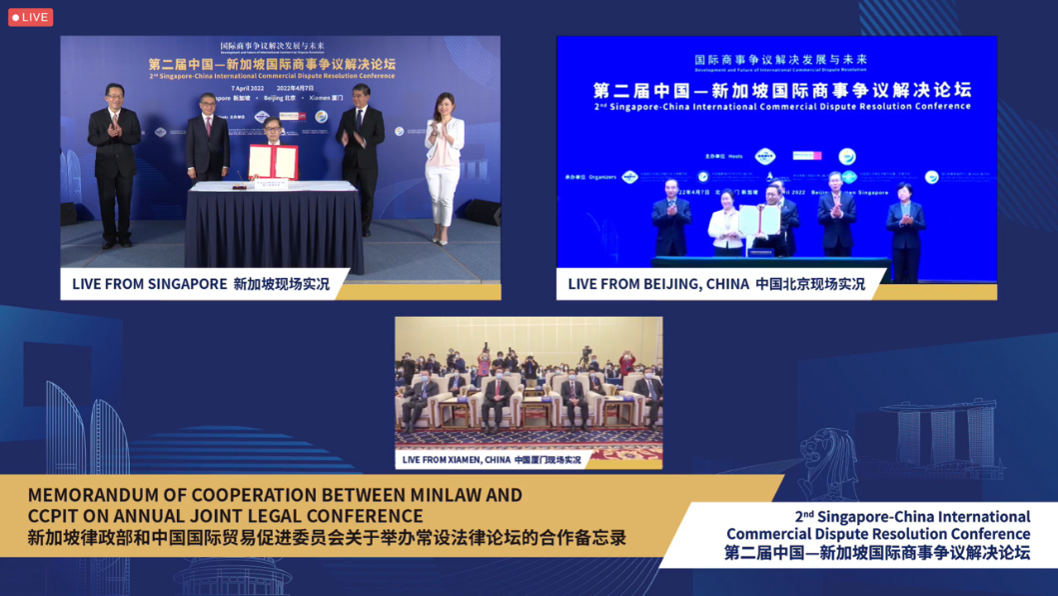
A new Joint Experts Team, comprising 12 eminent practitioners and academics from both countries, was also unveiled to study the legal feasibility of developing a new dispute resolution mechanism.
The members from Singapore are Mr Cavinder Bull SC, Mr Daryl Chew, Mr Chia Kim Huat, Mr Hee Theng Fong, Mr Adrian Tan and Associate Professor Yip Man, while the members from China are Prof Xiao Yongping, Dr Li Hu, Dr Liu Jingdong, Dr Wang Xuehua, Prof Li Shouping, and Mr Zhang Zhenan.
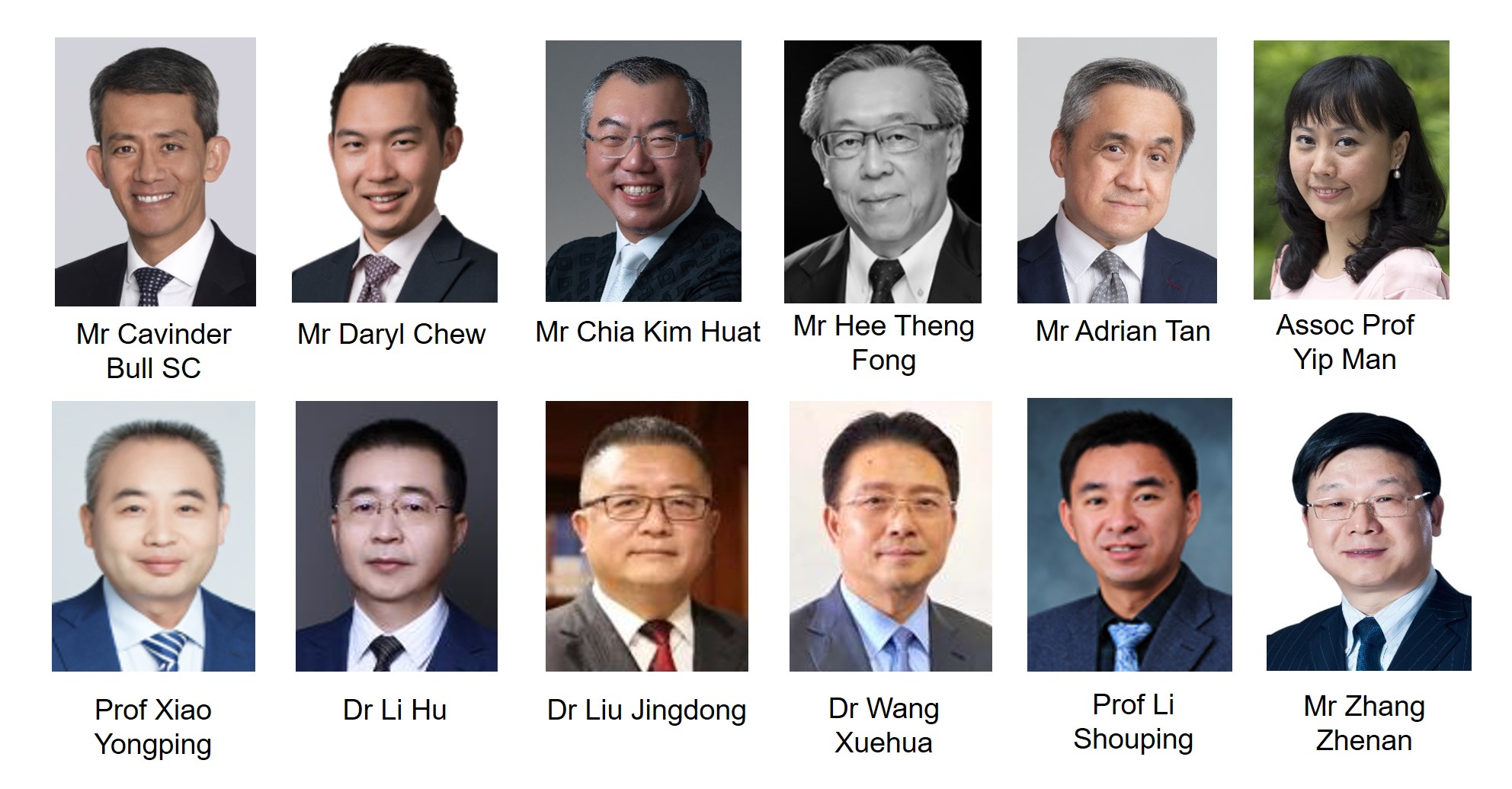 Members of the new Joint Experts Team from Singapore and China that will conduct research and make recommendations on the development of a joint dispute resolution mechanism
Members of the new Joint Experts Team from Singapore and China that will conduct research and make recommendations on the development of a joint dispute resolution mechanism
“I am confident that they will be able to make suitable recommendations, after studying the relevant legislation, the landscape and most importantly, understanding deeply the business environment because ultimately and fundamentally, dispute resolution does not exist on its own,” said Minister Edwin. “It exists to support businesses, resolve dispute in as efficient and efficacious way as possible, so that more businesses will want to come into this environment,” he added.
The Future of Commercial Dispute Resolution
Speakers in the government, legal and business sectors also shared interesting insights during the three panel discussions.
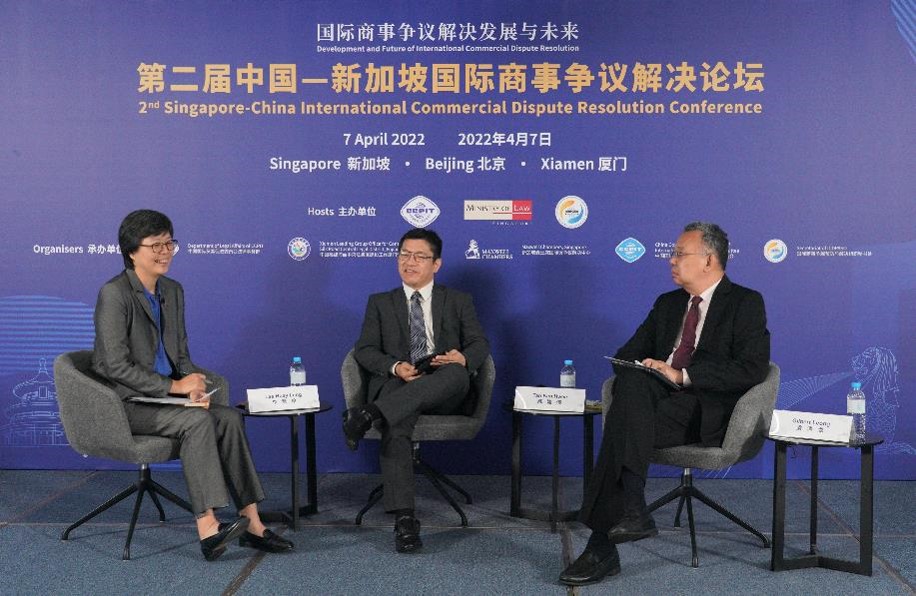
The first panel discussion at the Conference discussed how the judiciary and legal industry have responded to the challenges brought by COVID-19 through technological and other means, as well as how such measures have also helped in improving existing judicial and legal processes. For example, judiciary and legal practitioners in both Singapore and China have adapted to methods such as virtual court hearings and the use of electronic platforms for communication and submission of legal documents. Laws have also been amended in both jurisdictions to facilitate the continuity of legal procedures.
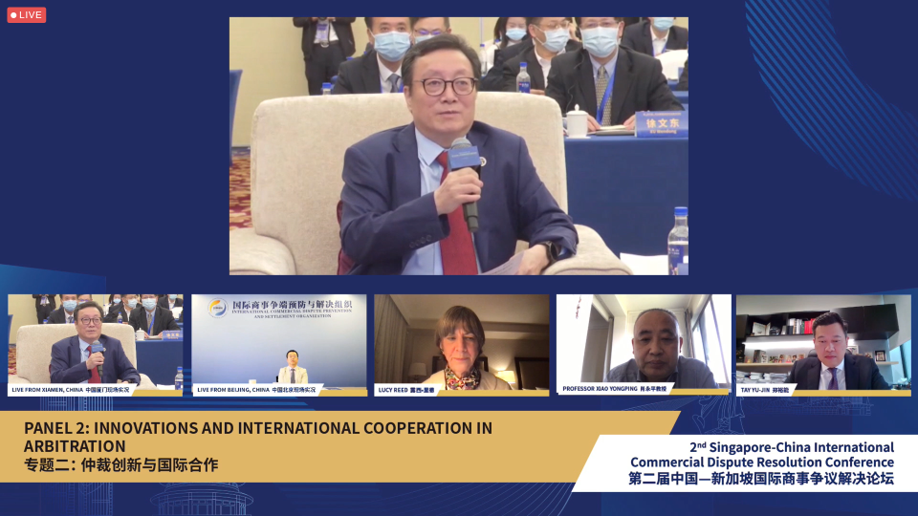
The second panel discussion looked at innovations and international cooperation in arbitration in resolving international commercial disputes today. As users are conscious about the cost and duration of arbitration, arbitral institutions are constantly looking at ways to make arbitration cheaper and faster. The panel discussed how various innovative solutions have resulted in time and cost savings, and the potential for further innovations. It also explored how arbitral institutions could work together to support users’ needs, for instance, the consolidation of related contracts with different dispute resolution clauses.
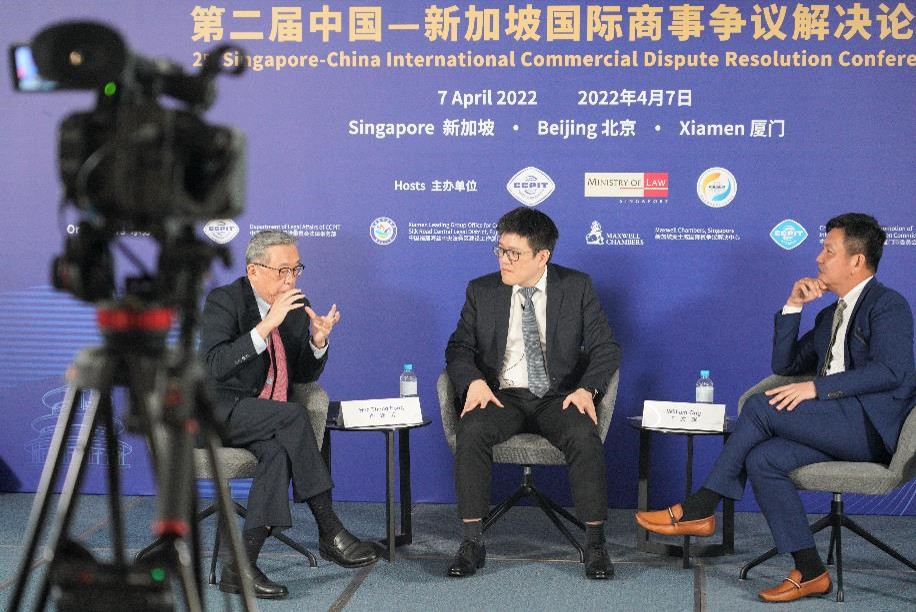
The third panel discussion of the day focused on the developments of multifaceted mechanisms in international commercial dispute resolution. Hybrid dispute resolution mechanisms, like the Arbitration-Mediation-Arbitration, or in short Arb-Med-Arb, and Med-Arb protocols, are becoming more popular among users. The panel discussed recent developments and challenges of hybrid mechanisms; regions and types of disputes which may be more amenable to hybrid dispute resolution, including for the intellectual property and infrastructure sectors; and measures for the prevention of disputes.
Last updated on 5 May 2022
Other stories you may like:
Global Experts Connect at Singapore Convention Week
Are You China-Ready?

